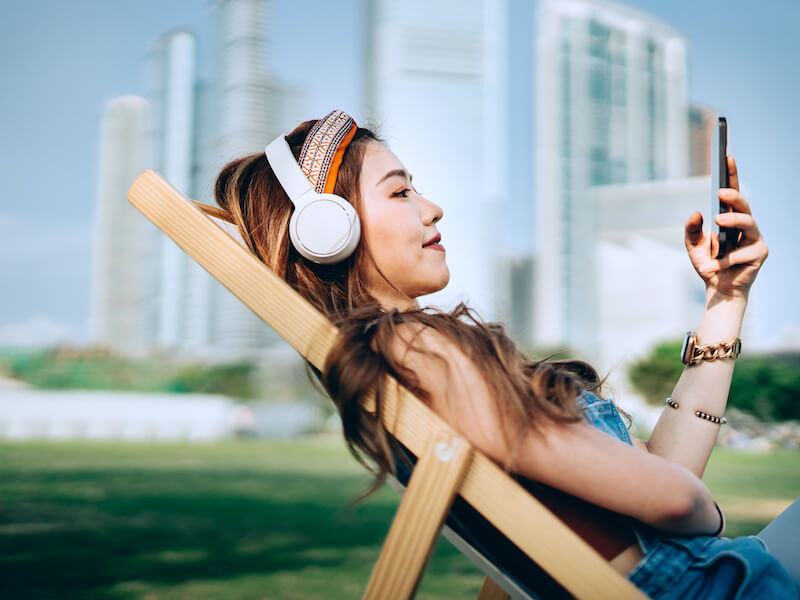
Music is an essential part of Aiden’s life. He listens to Spotify while working, switches to Pandora when jogging, and he has a playlist for everything: cardio, cooking, video games, you name it. His entire life has a soundtrack and it’s playing on his headphones. But lasting hearing damage might be happening as a consequence of the very loud immersive music he enjoys.
There are ways to listen to music that are safe for your ears and ways that are not so safe. Unfortunately, most of us opt for the more dangerous listening choice.
How can listening to music cause hearing loss?
Your ability to hear can be compromised over time by exposure to loud noise. We’re used to thinking of hearing loss as an issue related to aging, but more recent research is revealing that hearing loss isn’t an intrinsic part of aging but is instead, the result of accumulated noise damage.
Younger ears which are still growing are, as it turns out, more vulnerable to noise-induced damage. And yet, the long-term damage from high volume is more likely to be disregarded by young adults. So there’s an epidemic of younger individuals with hearing loss thanks, in part, to high volume headphone use.
Can you listen to music safely?
Unrestricted max volume is clearly the “hazardous” way to enjoy music. But merely turning the volume down is a less dangerous way to listen. Here are a couple of basic guidelines:
- For adults: Keep the volume at no more than 80dB and for no more than 40 hours per week..
- For teens and young children: You can still listen for 40 hours, but keep the volume level below 75dB.
Forty hours every week translates into roughly five hours and forty minutes a day. Though that may seem like a while, it can feel like it passes quite quickly. Even still, most people have a pretty sound idea of keeping track of time, it’s something we’re trained to do effectively from a really young age.
The more challenging part is keeping track of your volume. On most smart devices, computers, and televisions, volume is not measured in decibels. Each device has its own arbitrary scale. It might be 1-100. But perhaps it’s 1-16. You may have no clue what the max volume on your device is, or how close to the max you are.
How can you track the volume of your tunes?
There are a few non-intrusive, easy ways to figure out just how loud the volume on your music really is, because it’s not all that easy for us to conceptualize exactly what 80dB sounds like. It’s even harder to understand the difference between 80 and 75dB.
So utilizing one of the numerous noise free monitoring apps is highly advisable. Real-time readouts of the noise around you will be available from both iPhone and Android apps. That way you can keep track of the dB level of your music in real-time and make alterations. Or, when listening to music, you can also modify your configurations in your smartphone which will efficiently let you know that your volume is too high.
As loud as a garbage disposal
Generally speaking, 80 dB is about as loud as your garbage disposal or your dishwasher. That’s not too loud. Your ears will begin to take damage at volumes higher than this threshold so it’s an important observation.
So you’ll want to be extra mindful of those times when you’re moving beyond that volume threshold. And minimize your exposure if you do listen to music above 80dB. Perhaps listen to your favorite song at max volume instead of the entire album.
Over time, loud listening will cause hearing issues. You can develop tinnitus and hearing loss. The more you can be aware of when your ears are entering the danger zone, the more educated your decision-making will be. And hopefully, those decisions lean towards safer listening.
Contact us if you still have questions about keeping your ears safe.
